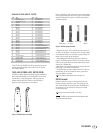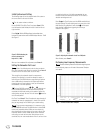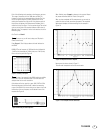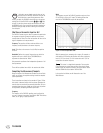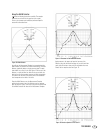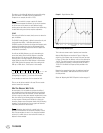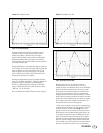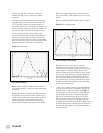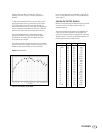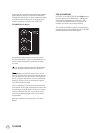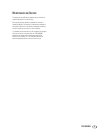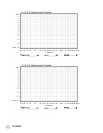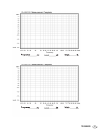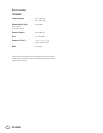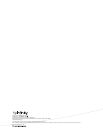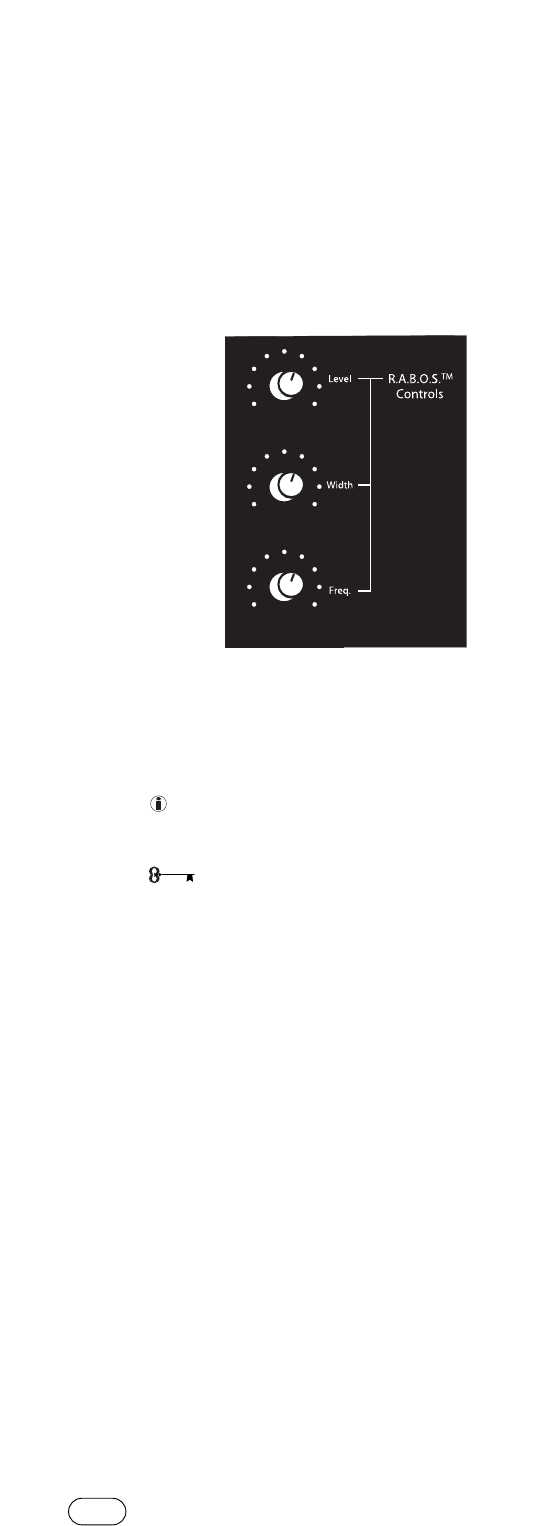
15
TSS-SUB4000
If using more than one subwoofer, always adjust both subwoofers
together.Adjust the controls as indicated by the Measurement
Template. Each value shown in the table is represented by detents
in the R.A.B.O.S. controls. Simply count the number of detents
necessary, indicated by the results of your R.A.B.O.S.Test.
TSS-SUB4000 R.A.B.O.S.Controls
After performing these adjustments, you may skip forward to
the “Final System Balance”section. It is recommended that you
perform a second measurement to confirm that the settings
are correct.
If you are going to retest the system after EQ adjustments,
repeat the “Setting the Subwoofer Test Level”section on p. 7.
Retesting the system will go much faster if you use
Tracks 27–50.These tracks contain all the same test tones you
just used. However, each tone plays for only a few seconds and
there is no frequency announcement. If you are uncomfortable
operating at this pace, you may,of course,perform measure-
ments with the original test tracks.
Y
our first interpretation of the data and choice of settings may
not be optimum.You can repeat the test-adjust-test cycle as often
as needed to get the desir
ed r
esults
.
T
o do this
,
return to page 7,
“Setting the Subwoof
er
T
est Le
v
el.”You may prefer to retest
using the same template
. Doing so makes it easy to evaluate
the improvement.
W
hen you ar
e satisf
ied with the r
esults, go to “Final System
Balance
.”
Final System Balance
Cue Track 51 of the R.A.B.O.S.Test CD. Press Play
›
. Increase
the system volume until the RSLM indicates –10dB. Now play
T
rack 52.Adjust the subwoofer gain control until –10dB
is indicated on the RSLM. Of course, you may fine-tune the
subwoofer gain control to your listening preference.
This concludes the R.A.B.O.S. process. It is recommended that
you remove the battery from the RSLM. Store the Test CD,Width
Selector,Adjustment Key and the RSLM together.



